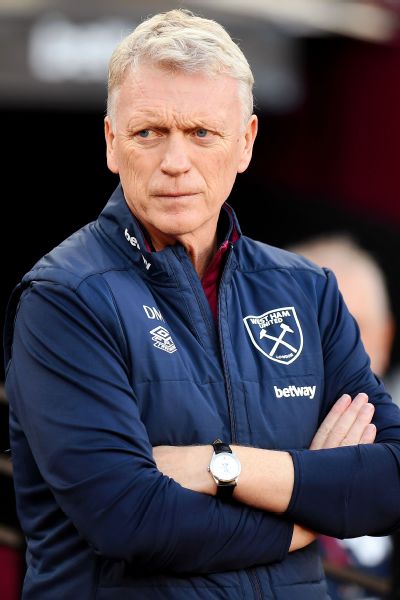Plenty of elite managers have been moving around of late, or deciding they need a break, but who are the best around right now in the men's domestic game in Europe? This list ranks the top 50, covering legends approaching the latter stages of their careers, rising stars just breaking through and everything in between.
How did you go about compiling the top 50?
An initial group of 70-odd names was narrowed down to 50 before I brought together a host of people working in the football industry -- coaches, sporting directors, CEOs and chief scouts -- for added input.
In an effort to emulate how professional clubs often draw up a long list when considering a new hire, the final 50 have been rated on six attributes from which the total score constitutes the position.
• Coaching acumen: The ability to apply coaching principles to a match setting, physical preparation and in-game management.
• Style: The attractiveness of the footballing style. Entertainment value is paramount here, as is a manager's capability to dictate the proceedings of a game in a proactive (as opposed to reactive, i.e,. play on the break) manner. Inevitably, an attacking style will produce a higher score.
• People management: Motivational skills and the capacity to get maximum performance out of a squad. The degree to which players appear to respond to and "play for" the manager.
• Communication: The extent to which a manager is capable of instilling trust in their "project" internally, to club directors and players, and to the outside world (media, supporters). Their expertise of conveying a message clearly, through well-chosen words and PR skills.
• History/achievements: Success and results. Though trophies are the main currency of achievement in football, other accomplishments such as winning promotion, getting teams out of relegation trouble, taking unfancied sides into Europe or overperforming on small resources count too.
• X factor: Ability to surprise and come up with new ideas. The likelihood of being considered for top jobs in the future. The resilience to bounce back from a poor run of results.
Notes:
• Only managers with at least one full season in charge of a first team were considered (Roma's Daniele De Rossi misses out), while those who have been out of work for two years or more (Zinedine Zidane) were excluded. No national team managers were included as it's not a like-for-like comparison with the domestic game.
• To keep the ranking as current as possible, past achievements (and X factor, which is arguably the least tangible category) are given less emphasis with ratings out of 10 instead of 20.
• When managers' total scores are equal, the score for past achievements decides the rank. If still level, X factor breaks the tie.
• The terms "manager" and "head coach" have been used casually throughout the piece, but if you want my definition of either role, click here.
• All stats are correct as of Aug. 12.
The List

50. GARY O'NEIL, 41, Wolverhampton Wanderers
Coaching acumen: 11/20
Style: 11/20
People management: 12/20
Communication: 11/20
History/achievements: 1/10
X factor: 4/10
Total: 50/100
O'Neil is still an apprentice in football management compared with most on this list -- he got his first job as caretaker at AFC Bournemouth less than two years ago -- but his results have been more than adequate. Despite landing the Cherries job permanently and keeping the club in the Premier League, he was sacked at the end of the 2022-23 season, only to land his next position two months later.
Having to overcome spending cuts and an exodus of top players such as Matheus Nunes and Rúben Neves, O'Neil's side was fun to watch as it was organised on the break last season, utilising fast wide players and smart movement to create goal-scoring opportunities. Always well-prepared and with a fluent approach to formations -- defending in a classic 4-4-2 and attacking in a 3-4-3 shape -- O'Neil regularly adapts his tactics and is able to find opponents' vulnerable spots as the game progresses.

49. DAVID MOYES, 61, Unattached
Coaching acumen: 12/20
Style: 9/20
People management: 13/20
Communication: 12/20
History/achievements: 3/10
X factor: 2/10
Total: 51/100
Moyes might be best known for failing to do the impossible and replace the legendary Sir Alex Ferguson at Manchester United -- he was sacked after eight months -- but he built his career at Preston North End and Everton before having to rebuild it again at Real Sociedad, Sunderland and West Ham after his spell at Old Trafford.
Arguably, his footballing style is starting to drift out of fashion. He's not one to experiment with formations -- largely staying loyal to his 4-2-3-1 -- or tactical trends. Moyes' direct, reactive football might not have always enthused the West Ham fans, but the fact that he took the club to a top-10 finish in three out of the past four seasons, and won the 2023 Europa Conference League, is impressive. The Scot has an ability to get steady performances out of any squad and, while the elegance of his football can be debated, has managed to introduce flair players (Mohammed Kudus, Lucas Paquetá) into his teams.

